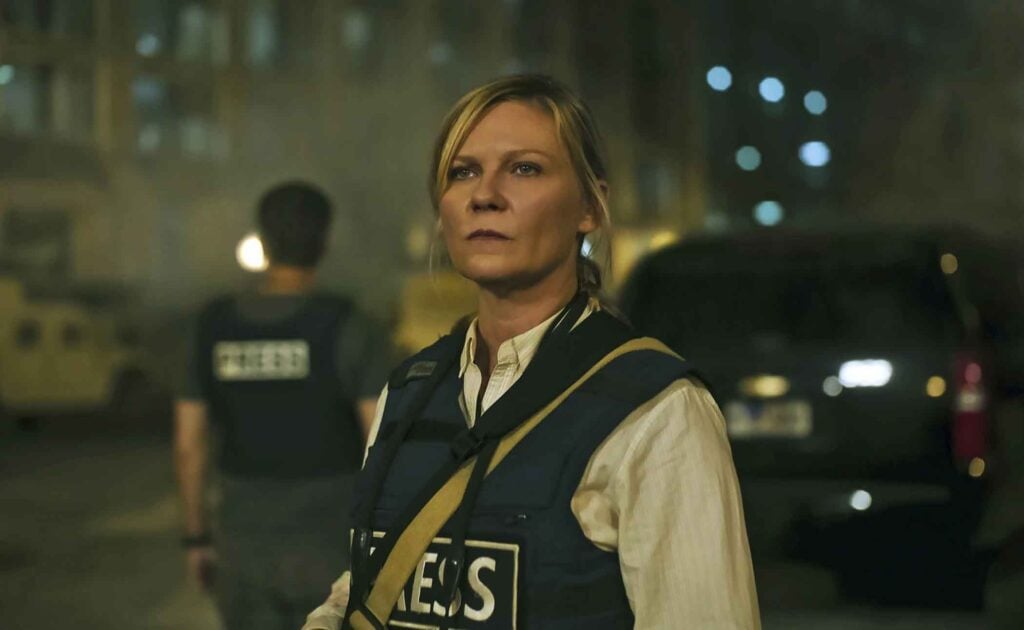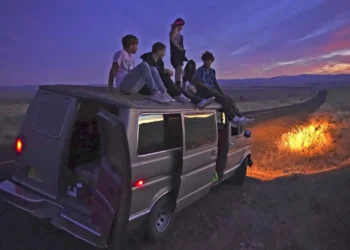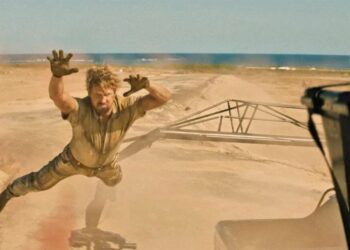Alex Garland’s Civil War poses a big question: What if American democracy shattered into a million pieces and citizens were forced to fight the government for our basic rights? If you’ve been watching the news, you’ll realize it’s not a farfetched concept. Written and directed by Garland with an artistry that combines the documentarian grit of Costa-Gavras (Z, Missing) with the keen eye of Steven Soderbergh, Garland’s craftsmanship has an undeniable power that will force one to ask if America isn’t so different from other countries that have engaged in warfare to wrestle back power from intractable dictators.
Of course, the movie’s tricky subject matter makes one question if it’s the right time to release such a film. Then again, maybe the timing is perfect since America is as deeply divided along political and cultural lines as at any time since the actual Civil War of the 1860s. Well, there’s nothing to fear, Civil War is more of an abstract cautionary tale than a serious commentary. Garland’s raw and compelling portrait of societal breakdown unfortunately tries so hard to skirt real American politics (and history) it falls short of greatness. The “America” in this film doesn’t resemble the country we live in, even accidentally.
Set in a nondescript future towards the end of a second American civil war, the conflict itself is portrayed as riotous mayhem in the cities and random bloodshed in the suburbs and beyond. It’s also a take-no-prisoners death march: there are refugee camps in college football stadiums, dead bodies littering roadsides and hanging from freeway overpasses, and soldiers with tanks and jeeps parked at checkpoints as they inspect IDs and shoot “secessionists” on site. These government soldiers might be well equipped, but the country’s president (Nick Offerman) and the national capital are under threat from the “Western Forces,” an alliance led by California and Texas, who banded together to fight this…
Read the full article here







